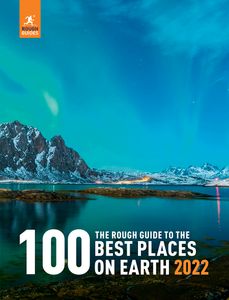The Dominican government also maintains tourist offices and toll-free tourist hotlines throughout the country and in the UK and North America, which can be helpful in hooking you up with tour operators and package travel agents. The glossy promotional materials handed out by Dominican consuls and tourist agencies are pretty to look at but seriously lacking in hard facts.
The tourist office maps aren’t especially good, but you can find several excellent ones of the country in travel bookstores and online; National Geographic’s Dominican Republic Adventure Map is especially accurate and detailed. Mapas Gaar, El Conde 502, 3rd Floor, Santo Domingo, RD (t 688-8004; closed Sun), has navigational charts of the surrounding waters and wall-sized, detailed blueprints of most Dominican towns.
Tourism offices
Canada 2980 Crescent St, Montreal, PQ H3G 2B8 t 514/499-1918; 35 Church St, Toronto, ON M5E 1T3 t 416/361-2126.
UK Dominican Republic Tourist Board, 18–22 Hands Court, High Holborn, London WC1 t 020/7242 7778. Call t 0900/1600 305 for brochure.
US 1501 Broadway, Suite 410, New York, NY 10036 t 1-888/374-6361; 561 W Diversey, Suite 214, Chicago, IL 60614 t 773/529-1336; 2355 Salzedo St, Suite 307, Coral Gables, FL 33134 t 305/444-4592.
Useful websites
The Dominican Republic maintains a large presence on the internet although ferreting out a specific piece of information can take some time. The following are a few tried-and-tested sites.
w www.activecabarete.com Terrific website devoted to Cabarete, with a detailed interactive map and a complete listing of hotels, restaurants, bars, current wind conditions, a calendar of events and other local services.
w www.debbiesdominicantravel.com A dizzying array of links to hundreds of Dominican-related sites and a deep archive of travellers’ personal accounts of all-inclusive vacations.
w www.dr1.com The most heavily trafficked Dominican message board and the best place to get information on the web. Also has a good daily news bulletin that you can sign up for.
w www.hispaniola.com A site dedicated to Dominican tourism, with a Dominican Spanish phrasebook, daily weather, a message board and an interactive map of Cabarete.
w www.listindiario.com.do Online version of the DR’s most venerable newspaper, with the best Dominican news coverage on the internet.
w www.paginasamarillas.com.do Home page of the Dominican Republic’s premier phone company, with a comprehensive Yellow Pages covering the entire country.
w www.popreport.com An exhaustive news bulletin and comprehensive roundup of tourist attractions and businesses in the Puerto Plata area.
Travellers with children
The all-inclusive resorts are especially helpful when you’re travelling with children, as they’re in self-contained spaces, provide three meals a day and are generally designed to take care of the daily tasks of life for you. All resorts make at least some token effort toward children’s activities and some are quite good at it. Independent travellers will find that the DR is a family-oriented place, and that locals are welcoming to small children.
You should watch out particularly for the sun – which is dangerously strong; spf25 and above is recommended – and the water: children are particularly susceptible to gastro intestinal problems caused by tap water and you should make sure the whole family brush their teeth with bottled water.
You’ll find that Dominicans love children and will focus a lot of positive attention on them. They’re also more accepting of them in restaurants and hotels, and are unlikely to be bothered by any ancillary small-children chaos or noise; public breastfeeding, though, is pretty much unheard of. It’s easy enough to buy nappies and the like in grocery stores, pharmacies and even rural colmados.
Travellers with disabilities
There are unfortunately few facilities that make independent travelling easier for the disabled in the DR, and no rental cars come with hand controls, though certain major monuments have access ramps. Most of the all-inclusives, though, have wheelchair access to certain rooms and all of their restaurants, casinos, bars and beaches. Call the hotel directly before booking a package for specific details regarding the hotel’s infrastructure.
Women travellers
Though violent attacks against female tourists are relatively uncommon, many women find that the constant barrage of hisses, hoots and comments comes close to spoiling their vacation. Dominican men are quite aggressive and women travellers should come armed with the knowledge that they will draw incessant attention whether they like it or not. Also, at major festivals and on crowded streets, you may be subjected to a lot of groping hands. Whatever you do, don’t be afraid to seem rude; even the mildest polite response will be considered an indication of serious interest.








